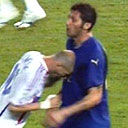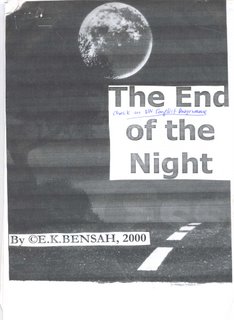The Middle East Reminds me of Why the Fight Against Injustice Continues
Ok, so it’s still been a long time. I hope you’ve been doing great. You’ve been visiting the site but not commenting:-( Well, here’s some food for thought.
Tensions in the Middle East have facilitated some free-thinking, as it were, by many including the BBC, which intoned last week that the Iraq War was comparable to that pet topic of mine—the Suez crisis of 1956--where Nasser the nationalist asserted himself at the expense of the interests of his country by simply nationalizing the Suez Canal, which was key for trade for the Brits and the French.
So, this is what the Brits and the French did in order to protect their interests.
For the Brits, "collusion with the two was a way of re-establishing a hold over one of their most prized colonial assets -- the Suez Canal -- that had provided them with considerable economic leverage for many decades since the 1880s. As Stoessinger writes, "to Britain, control of the canal symbolized her status as an empire and as a world power."
For the French, "their justification was predicated on the belief that Nasser was helping fund "the Algerian rebellion against France."
This is how the BBC describes the genesis of the plot:
"Israel was longing to have a go at Nasser anyway because of Palestinian fedayeen attacks and the Egyptian blockade of the Straits of Tiran.
The ruse was that Israel would invade Egypt across the Sinai peninsula.
Britain and France would then give an ultimatum to the parties to stop fighting or they would intervene to 'protect' the canal.
And so it played out. The Israelis even had to moderate their attack in case they won before the 'intervention' forces could arrive. But the British and French went in to 'save' the canal.
There was only one thing wrong. Eden had not told the Americans.
From: http://news.bbc.co.uk/2/hi/middle_east/5199392.stm
I won’t bore you so much about the Americans except to say that the Americans were not amused. Eisenhower played a rather principled stance; the UN got involved under the aegis of the charismatic Dag Hammarskjold. The first-ever UN force—UN Emergencey Force—was deployed after the UN SG condemned the pusillanimous acts of the tripartite ruse of Israel-Britain-France. Eventually, the UN troops would supervise the gradual withdrawal of the Israelis and monitor the border between Egypt and Israel.
The regrettable and sinister element in the conflict, I wrote, was that "that considerable attention was diverted towards bringing British, France and Israel to heel, to me indicates that whilst the latter three were scattering into the woodpile like rats, the big Russian bear was walking back to its cave scot-free. In the end, the irony of the Suez debacle is that as the noise of the rats ducking for cover reached fever pitch, neither the roar of the Stentorian US nor the strong urges of the UN were able to do anything to help Hungary as it burned"
While the Suez crisis may be all well and good, I am more comfortable looking at how current crisis in the Middle East resonates with that of the Crimean War that ended in 1856, with a Treaty of Paris.
The Crimean war, in sum, saw the demise of the Russians in South East Europe, and secured the definitive demise of the so-called Concert of Europe – a kind of historical prelude to the UN’s Security Council -- that had kept the peace from 1815-1856.
Why that is significant is that it brings home the Russian factor, which I would like to broach very quickly.
I am sure you may re-call that in January, Russia cut supplies to Ukraine in a row over prices. Russia has a monopoly over Gazprom, and in April – in a far departure to the situation during the Crimean war of 150 years ago when the Brits became so Russophobic it was not funny – made explicit its plans to take over British-owned Centrica.
I think you might speculate that the Russians are at their peak, considering how the Blair government is also keen to promote the further opening of its markets. The BBC reported that the UK’s Trade Minister Alan Johnson said "Whatever the difficulties and challenges of globalisation, the answers will not be found in the stagnant waters of protectionism,"
Privatisation versus nationalisation
A lot of people might think that is a true point; I beg to differ. It is interesting, in my view, to note that the nationalisation of Nasser in 1956 runs in serious askance to the privatisation of the UK government over its state-owned Centrica, among many things. Can you, however, imagine that the UK government has been actively pursuing the privatisation of it National Health Service (NHS)?
I can hardly believe how increasingly neoliberal the UK government under Tony Blair is becoming.
More on that later…
What, for me, is symbolic is the progressive forces that I see at work in the world. I find it rather ironic that exactly sixty years after the beginning of the Spanish Civil War, that saw the unleashing of progressive forces and alliances, we find in the same month of July similar progressive forces rejoicing over no less than the collapse of the talks of the World Trade Organisation.
Let’s face it: you cannot talk about the fight against imperial tendencies of, say, the United States over Iraq, without taking a critical and reflective look at the policies of the WTO, the IMF, and the World Bank.
Boring, maybe, but suffice to say that those are the quintessential axes of evil.
From a historical perspective, 2006 has been a year when privatisation –both in the domestic and multilateral level – has been high.
The rather technical yet menacing acronym of GATS, or the General Agreement on Trade in Services (http://www.gatswatch.org/) is, in effect, ...
...an international trade agreement that came into effect in 1995 and operates under the umbrella of the World Trade Organization (WTO).
The aim of the GATS is to gradually remove all barriers to trade in services. The agreement covers services as diverse as banking, education, healthcare, rubbish collection, tourism or transport.
The idea is to open up these services to international competition, allowing the way for huge, for-profit, multinational firms.
"The GATS is not just something that exists between Governments. It is first and foremost an instrument for the benefit of business"
European Commission, 1999
Since February 2000, negotiations are underway in the WTO to expand and 'fine-tune' the GATS. These negotiations have aroused concern world-wide. A growing number of local governments, trade unions, NGOs, parliaments and developing country governments are criticising the GATS negotiations and call for a halt on the negotiations.
In India, as I write this, India is being asked to open up its legal service for foreigners to compete and many more are sure to come—most probably in camera and without public scrutiny.
The biggest threat around GATS is that it forces a locking-in of privatisation. If a country changes its mind to, say, open up its health sector to the WTO, it would have to compensate ALL of the WTO members. If you are an industrialised country, you might be able to afford it, but it would still cause a heavy strain on your budget and economy, no?
At our conference at the plush South Africa 4* star Cresta Royale Hotel (ironic, no?) the week of 17th July, Pete Hardstaff, Head of Policy at the UK-based World Development Movement argued how privatisation was being pushed very forcefully by Europe.
Whilst there are many on the European continent, one particular one I referred to earlier is that of the privatisation of the UK’s health sector under the NHS. The Socialist Worker, among many papers, has reported extensively on this. For them, it has underscored the neoliberal ideology of Tony Blair.
So alarming has this latest privatisation drive been that, in an attempt to forestall, or counter it, a website has been created to fight it: http://www.keepournhspublic.com/newsroundup.php
Latest reports from today’s press indicate that the American firm (Texas-based!!) that was handed the ₤4bn NHS contract was investigated for overcharging. It has set its sights to take care of purchasing and distributing everything "from bandages to hip implants."
So, in the long run, what are the lessons here for us, small people?
I think that history reminds us of the myopic interests of leaders. Suez was one; Iraq is another. As to whether the parallels drawn can only go to underscore the perfidy, or treachery, of our governments when they decide to go a-filibustering, and particularly when it blows unceremoniously in their face, is moot.
What we, as citizens, might remember is that no matter where we are, no matter our background, the fight for global justice everywhere becomes meaningless unless it is linked with the total disjuncture of global greed—be it at the multilateral level or the governmental one.
Tags: privatisation; Global justice







